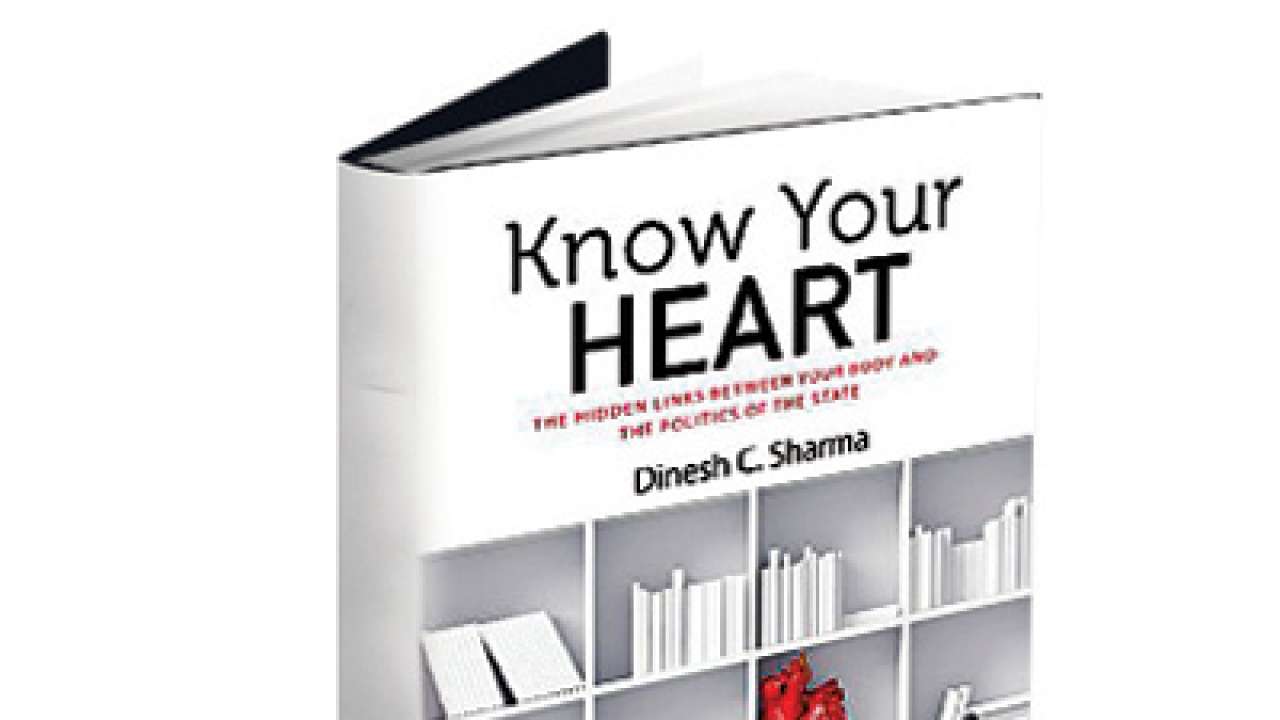
Book: Know Your Heart; The Hidden Links Between Your Body And The Politics Of The State
Author: Dinesh C. Sharma
Publisher: HarperCollins
Pages: 171
Price: Rs 250
Heart disease is the leading cause of death in India. There will be 61 million heart disease cases in India, more than double the 27 million in 2000. Heart disease affects 8-10 percent of the population in cities, and 3-4 per cent in villages, a "six-fold and two-fold rise respectively between 1960 and 2000", says author Dinesh C Sharma.
The reason for heart disease spreading is well known -- increasing prosperity, which is changing our diets and making us lazy. What is less known is the dark tale that Sharma tells of how short-sighted, ill-informed or muddle-headed policies initiated by the government since economic liberalisation in 1991 have led to the rise in heart disease.
Sharma looks at three areas. One, the government's encouragement of the food processing industry through incentives, concessions and loans. Sharma traces the policy to 1988, when PepsiCo was allowed to set up a unit in Punjab, overriding concerns by as many as 14 inter-ministerial panels that it would "ruin Indian health by getting people hooked on to potato chips and other junk food".
Next, he takes up the issue of government repealing the Rice Milling Industry (Regulation) Act, 1958, in 1997 which made it easier to set up rice mills. These mills put rice grains through an intensive process removing the outer husk along with its fibre, vitamin and nutrients. The white rice, Sharma says quoting from several researches, has been linked to an increased risk of diabetes, and heart disease. Then, the slashing of import duties on vegetable oil since the late 1990s, Sharma shows, has led markets being filled with cheap palm oil -- which research says promote heart disease.
The government has also not phased out artificial trans-fatty acids (TFA), which lower good cholesterol and boost bad ones, despite a 2006 WHO recommendation. Sharma refers to a 2009 study by the Centre for Science and Environment which revealed that all vanaspati brands in India had five to 12 times higher TFA content than global standard. Sharma notes that there is no regulation on TV ads of processed or ready-to-cook foods, many of which appeal to children and are full of harmful saturated fats, cholesterol and sodium, and have little essential fibre, vitamins, calcium and potassium. There is also no check on claims printed on packs of processed foods of reducing disease or being a healthier substitute. Not just that, the Indian government actively promotes junk foods, Sharma says -- in 2010, a print ad issued by the ministry of food processing industry proclaimed: "Processed foods are as healthy as fresh foods".
Sharma contends that rampant urbanisation and skewed priorities of town planners, have led to vehicles hogging a major share of our roads, leaving little space for cyclists or pedestrians. In its bid to encourage the automobile industry, the government,Sharma says, has been encouraging creation of parking facilities-- often eating up empty spaces in cities where people, especially children, once exercised or played. An efficient bus or metro network -- Sharma calls these "active" forms of public transport -- could help citizens catch up on the 30-minutes of exercise they need to keep heart disease at bay. But even here, Sharma shows, the government's policy of high, annual levies on public vehicles and low (comparatively), one-time taxes on private vehicles make it unviable for bus operators to provide more than a very basic level of service.
And finally, tobacco. India accounts for the highest number of tobacco-related deaths -- 5.5 million -- in the world, yet, as Sharma points out, the country has three agencies to promote tobacco trade! Lucid, packed -- sometimes overmuch -- with details, this is a book that every health-conscious citizen should read.